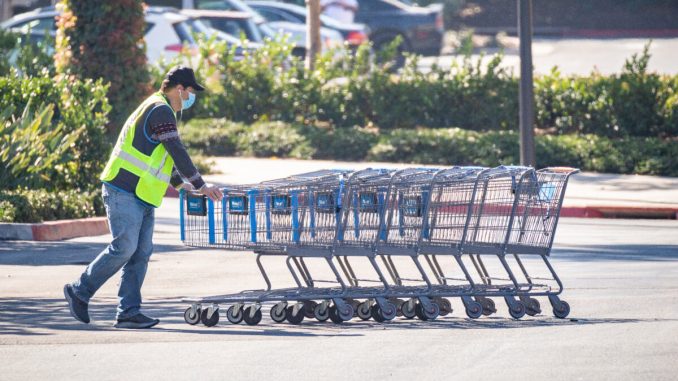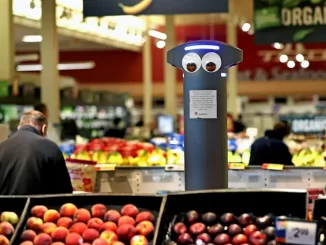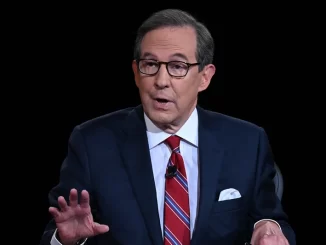

Anaheim city council during its May 11 meeting moved forward with an ordinance that would increase the hourly wages of grocery and retail workers.
The measure would provide such workers with a $3 per hour pay boost for 60 days.
Councilmember Jose Moreno initiated the “hero pay” ordinance, also known as hazard pay, with support from councilmembers Jordan Brandman and Avelino Valencia.
“We know there’s a tsunami of economic hardship coming their way,” Moreno said.
“Many of them have had to defer their rents, have had to defer credit card bills, car payments, forbearance on mortgages … That’s why this is important to still consider—in a temporary and modest way—so that our city can avoid an economic catastrophe by our workers who stepped up for us over the last 14 months.”
Moreno said he wanted to ensure that such an ordinance would “not impact the very localized grocers and small mom-and-pop folks, who are very thin on their profit margins. This really could make or break their business that they worked so hard for.”
Councilmember Trevor O’Neil said it’s not the government’s role to interfere in the employer-employee relationship by implementing a wage mandate, especially when it only applies to a single industry.
“We have thousands and thousands of Anaheim workers that have lost their jobs during the pandemic, and here we are talking about higher wages for a small group of workers who were fortunate enough to keep their jobs,” O’Neil said.
If the ordinance goes into effect, O’Neil said grocers and pharmacy retailers “will respond with reduced hours job cuts store closures and litigation, let alone the fact that this kind of wage mandate would only serve to raise prices on hardworking families at a time when they can least afford it.”
He said that it is the union’s role to negotiate on their members behalf with the employer.
“Now your unions are asking the government to take it by force because they failed to get it at the bargaining table,” O’Neil said. “All union members should know that you can opt out of paying your union dues. And indeed if you weren’t paying union dues, you’d already have more take home pay.”
O’Neil accused Moreno of engaging in “pay-to-play politics,” as he took “maximum campaign contributions” from the United Food and Commercial Workers Union in 2016 and 2018.
“Now councilmember Marino rewards them by bringing this item forward,” O’Neil said. “I only wish councilmember Marino would have advocated for safely reopening our economy, and bringing back jobs to many more Anaheim residents, as much as he has for his union friends.”
Councilmember Avelino Valencia said the ordinance sent a message that the public is thankful for the risks grocery levels took during the COVID-19 pandemic.
“I believe it’s important that we recognize their hard work and the risks they’ve taken to provide essential goods to our community by focusing the language in the potential ordinance to grocery retail and retail pharmacy stores,” he said
Valencia proposed the ordinance be limited to 60 days and provide employees with a $3 per hour pay bump. He said the ordinance would only apply only to employers that have 50 or more stores nationwide.
Councilmember Jose Diaz said he was strongly opposed to the hero pay ordinance on grounds that the government should not intervene in a free market economy.
“Mayor, the proper way to do this is for the employee and employer to sit down and negotiate,” Diaz said.
Diaz said that the grocery and retail pharmacy industries have spent billions of dollars on making the workplace safer for their employees and customers during the pandemic.
“We need more groceries, or we need more commerce. We need more businesses. But we don’t need more regulations.”
Diaz questioned the constitutionality of such an ordinance, and feared the possibility of a lawsuit.
“We don’t have the resources for litigation,” he said. “I’d rather put those monies in improving our streets or into housing, and stuff that our population needs.”
Mayor Harry Sidhu said that since California is set to fully reopen June 15 and COVID-19 metrics are improving, a hero pay ordinance would “risk counterproductive, unintended consequences.”
“By singling out one industry, this could lead to customers paying higher prices—especially in hard hit neighborhoods—that markets would need to rethink their business model, and to make drastic actions across all sectors of this operation to remain economically viable,” he said.
Mayor Pro Tem Stephen Faessel, being involved in the retail industry for 50 years, said that he is “very uncomfortable philosophically in getting the city government involved in areas of wages.
“I just am very uncomfortable with us, as a city council, determining that we’re going to select some businesses, of other businesses, to have an upwards of a $3 to $4 salary increase,” Faessel said.
“There’s a number of employees, not only the grocery industry, but police and fire and sanitation, and I mean our public works—people that all were out there every day during the last more than a year of the pandemic—and they all stepped up. They all did their jobs as you did. You had risks, they had risks.”
Council will vote on the ordinance during its May 18 meeting.






Be the first to comment